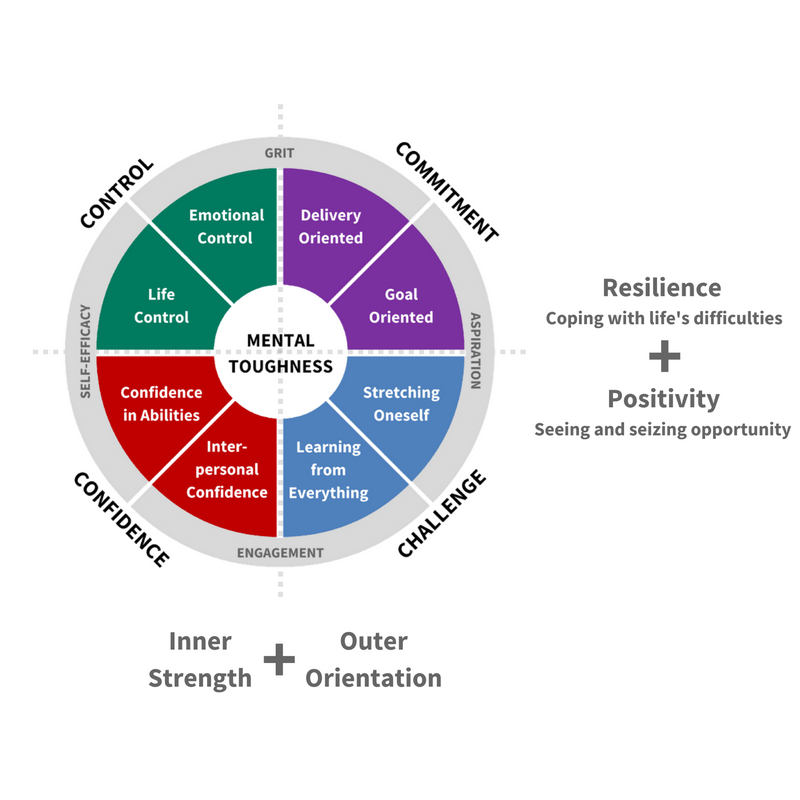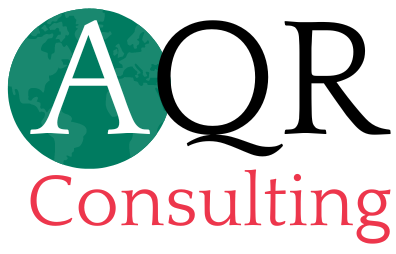What happens when you connect the dots of stress, mindset and values
What happens when you connect the dots of stress,
mindset and values
Behavioural and neuroscience research is turning how we think about and deal with stress on its head. By helping employees re-think their approach to stress companies can improve wellbeing, confidence & performance of their people.
Resilience has become a buzz word in recent years both in and outside of the workplace. Yet it means different things to different people. The most common definition from employees we see is ‘the ability to bounce back’.
It’s worth taking a moment to clarify what we mean by resilience. Resilience is a facet of the wider concept of mental toughness and the 4Cs model (Control, Commitment, Confidence and Challenge) as defined by Clough & Strycharczyk.

Resilience is made up of Control and Commitment – the ability to control our emotions and
the ability to commit to our goals and purpose.
In lay terms, it’s the ability to achieve whatever we set out to do by controlling how we deal
with the bumps along the road.
The good news for companies and employees is that resilience can easily be measured and
developed. Research over the last few years has shed light on how mindset and values play a
significant role in a person’s ability to deal effectively with long term stress that is a part of
modern working life.
The old saying: ‘If you can beat them, join them,’ is very apt when it comes to the new
approach to dealing with stress. To date, stress interventions have largely focused on
avoidance strategies. This is often impossible, as much of what causes us to feel stressed is
beyond our control and is sometimes what we value most.
Stress is what happens when something we care about is at stake. By embracing the fact that
we do care about whatever is the source of stress also becomes the best way of dealing with
it. The amount of stress one faces isn’t a predictor of how well we’ll deal with it.
Research is now proving that the biggest single predictor of how we fare under stress is our
beliefs around it.
To improve our ability to deal with stress we first need to change our mindset about the
source of the stress. The prevailing view of stress has been that it is detrimental to both our
short-term performance and long-term health. Stress has been shown to adversely affect our
cognitive performance and immunity but it’s now also being shown to enhance immunity,
simply by changing our mindset.
A study conducted by Prof. Alia Crum from Harvard University of 400 people from an
international financial institution, found that those that had a 'stress-is-enhancing mindset'
demonstrated better health, life satisfaction and better work performance than those that had a
stress-is-debilitating mindset.
A subset of those 400 people was also shown a series of three-minute videos over the course
of the following week. These videos illustrated either the stress-is-enhancing view or stress-
is-debilitating. Those that watched the stress is enhancing videos demonstrated significant
increases in well-being and work performance.
Another study also demonstrated that people with a 'stress is positive' mindset, used
productive strategies to deal with stress rather than negative avoidance strategies.
The good news for everyone is that changing our mindset is a relatively easy, quick and long-
lasting thing to do. Numerous studies show that simple, quick and relatively cheap tools such
as videos, short e-courses and writing have a powerful and long-lasting effect on mindset and
the ability to deal with stress, thereby enhancing our resilience.
In simple terms, stress is bad because we think it is. If we can show employees a different
way to view and use stress - a growth mindset (Carol Dweck) - we can help build their
resilience.
Building resilience in the face of stress can more powerful when we connect the source of
stress to the values that are important to us or the company.
The more meaningful the work we are engaged in often the more stressful it is – because we
care about it. But conversely, the more stress we can cope with effectively because we care
about it. A meaningful life is often stressful life. This is the stress paradox.
When we can identify and connect our purpose with the source of stress we become more
positive and enthusiastic. It helps takes us out of the moment and gain some perspective on
the source of stress and stop us from being swallowed up by negative emotions.
Companies, managers, supervisors that can help every person answer the question – ‘What is
the reason I do the work I do?’ – and find personal meaning in that answer will see lower
levels of stress and improved performance.
The challenge for HR, leaders, and managers is how to get their people to connect their
personal values with those of the company and the work they do. To identify the bigger
impact the business has and the good each person does through their work.
Facilitating this clarity will support their people to perform under pressure and be more
resilient through the tough times.
This requires a holistic approach encompassing the senior leadership, HR and
communications teams.
How can your organisation help employees connect the dots between stress, mindset and
values?
This article appeared in the November 2017 edition of HRDirector magazine (#157).


